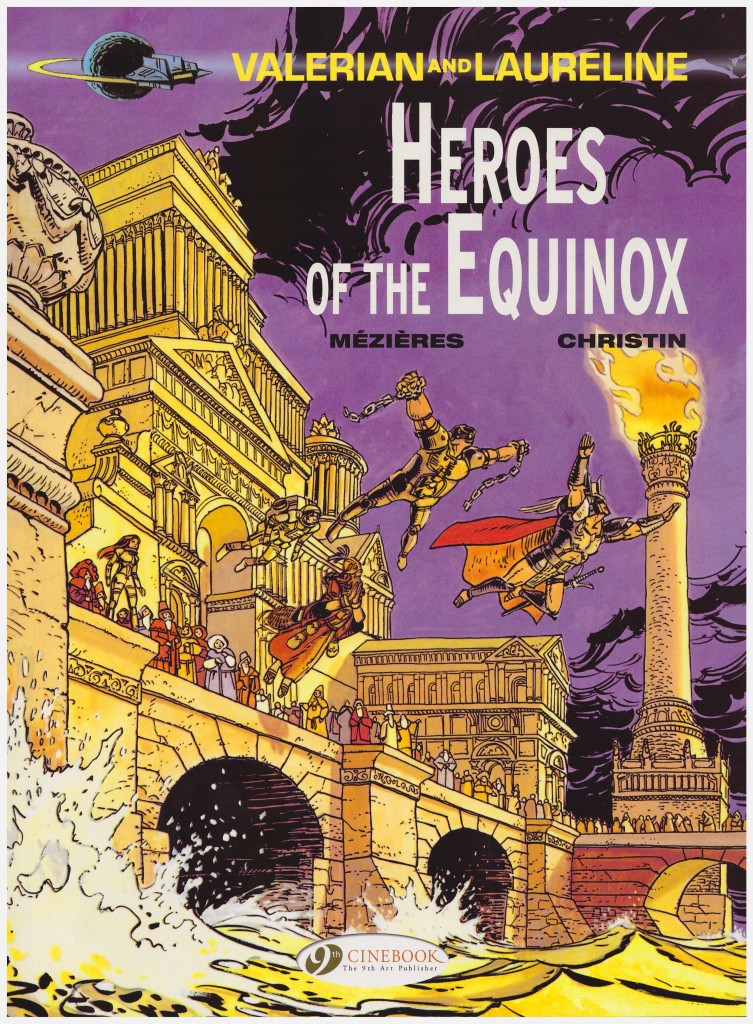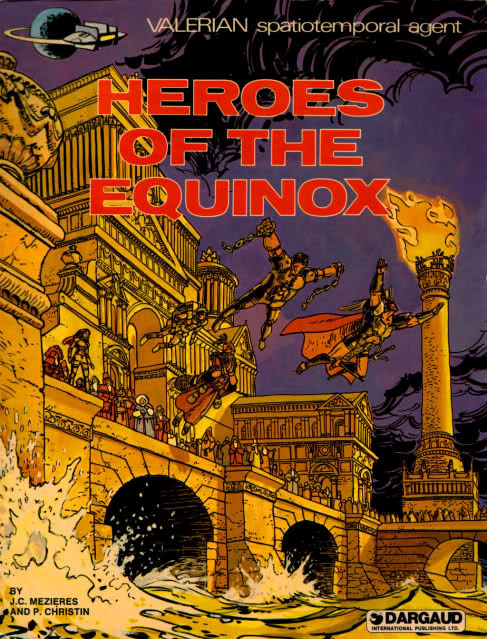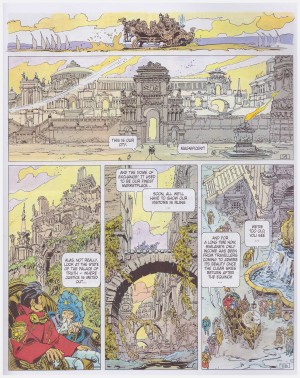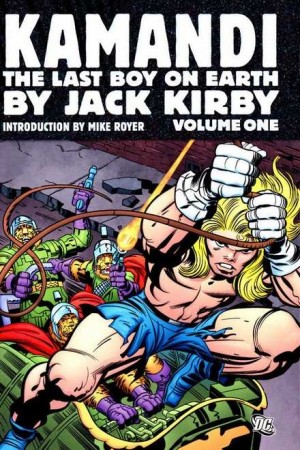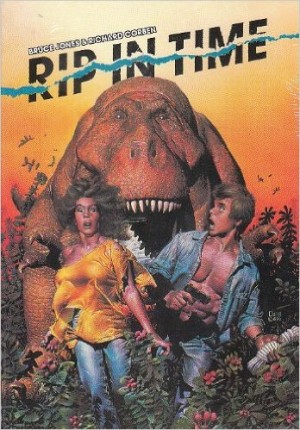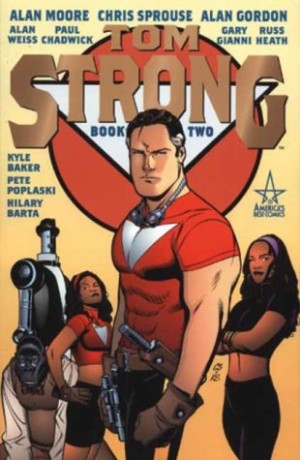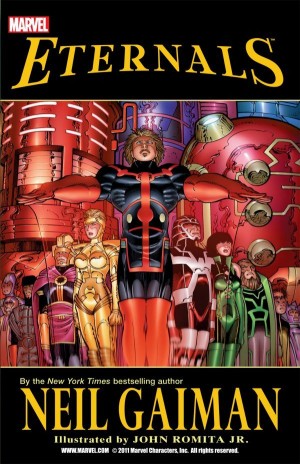Review by Frank Plowright
In the past Heroes of the Equinox was the go-to Valerian and Laureline story when it came to English language translations, and every previous attempt to embed the pair in overseas graphic novel culture has failed. It’s difficult to offer any explanation other than the time not being right, as this is very good science fiction adventure with nods to both Jack Kirby and Moebius, plus a side dish pondering the advisability of social planning. It’s a heady brew.
Valerian is selected to represent Earth in a contest run by the Grand Council of Simlane, where he’ll be joined by the champions of three other worlds. Simlane is a dying society with an unusual and secret process of replenishing the population that’s not been working of late. Formerly chosen heroes would set sail for a distant land and overcome hardships. They’d return several days later with little memory of what occurred, and several boats with young children to increase the head count. Lately, though, the selected champions haven’t been returning, and the older citizens no longer have the strength to maintain the magnificent structures at the heart of their tourist based economy.
Jean-Claude Mézières magnificently recreates the distressed glory of these buildings, and is equally impressive when it comes to the quests. Valerian and the other three champions take individual paths to a destination, and Mézières contrasts their journeys and hardships via four long parallel panels, sometimes running along a single page and at others extending over a spread. As written by Pierre Christin each champion is a dogmatic representative of a form of society familiar on Earth, from the nature-loving to the military dictatorship, and their approach to problems and confrontations reflects their conditioning.
Heroes of the Equinox is an atypical Valerian and Laureline book signifying the shift in emphasis to come. There’s no great science fiction cleverness to matters, and it’s a quest rather than a mystery or a battle. Christin conveys his points about society and determination (in both senses), but much of the book is man against whatever’s thrown at him and there’s a longstanding mythical quality to such material. He picks up the slack a little with the revelations of the final pages, ensures Laureline’s not just a passive bystander, and ends, as with some previous albums, with a comical setback.
It should be noted that even if older editions are cheaper, the Cinebook version is the one to buy. Jerome Saincantin’s naturalistic translation ranks way above the earlier attempts, to the point of never considering you’re reading a work originally in French. Additionally those previous versions were colour saturated, and while of its era, at least the colouring here isn’t lurid and dense.
The series really shifts into high gear with the next book Châtelet Station.
